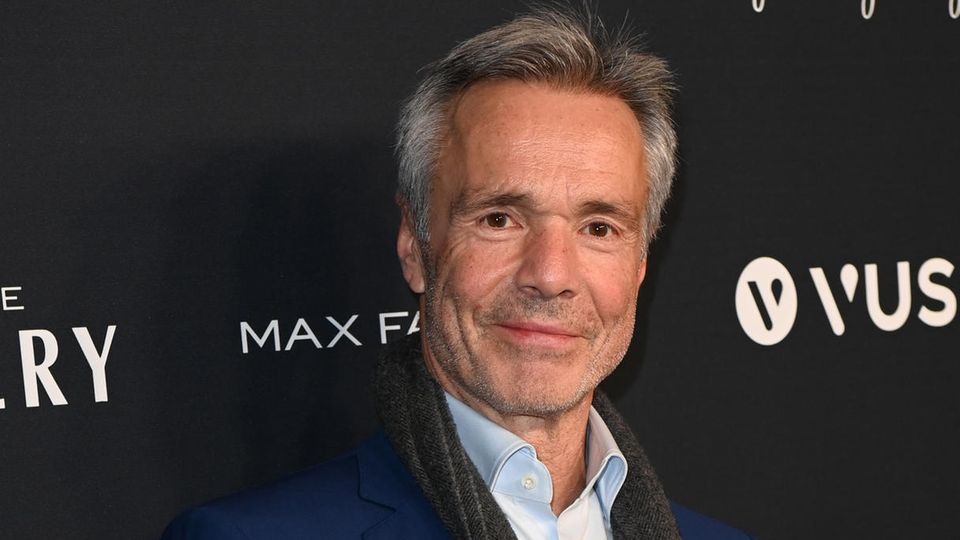Many producers are in a bad mood at the start of the Berlinale. As always, it’s about money. Minister of State for Culture Claudia Roth promises a remedy, but could turn it down to Finance Minister Lindner.
One of the largest German film productions in years is being made, which could in principle be a moment of euphoria. Instead, many industry participants complain at the Berlinale. The fantasy epic “Hagen”, which is also based on the most German of all legends, is being shot with a budget of around 50 million euros by the leading local production company Constantin from Munich not in the Bavarian forests – but in Bohemian ones. Even Minister of State for Culture Claudia Roth is whining. As a Bavarian, this particularly hurts her, Roth complained on Thursday at a conference of film producers at the start of the Berlinale. “If Constantin from Bavaria goes to the Czech Republic now, that is a red warning sign and we have to act,” shouted the politician.
The departure of the Nibelungen drama is not an isolated case. The famous film studios in Potsdam-Babelsberg have been largely empty for over a year because no major international productions are coming to Germany. Other production service providers are in a similar situation. In the autumn survey by the production alliance industry association at the end of last year, 56 percent of companies described the economic situation in film as bad or very bad. Last year’s cinema figures, which the film funding agency FFA presented on Wednesday, show a significant increase – almost 30 percent more cinema ticket sales than in the previous year. But the number of tickets sold is still almost 20 percent below the pre-Corona value and sales are almost 10 percent. The most successful German film in the hit list (“The Three ??? – Heir of the Dragon”) only came in 9th place. The market share of local films fell from 27 to 24 percent.
But the main cause of the misery is not the German cinema business. All over the world the market for film and entertainment is slipping. This has a particularly severe impact in Germany for structural reasons. “The best times are over,” summarized Berlin industry consultant and analyst Klaus Goldhammer at an industry conference at the end of January. The reason, Goldhammer calculated, is the extremely severe market shakeout in the streaming market. After the success of Netflix, the “Streaming Wars” unfolded around the world. As a result of the corona pandemic, global US companies such as Apple, Amazon, Disney, Warner Discovery, Universal and Paramount invested more and more billions in series and films in order to send their video-on-demand platforms into battle against Netflix. Local players also came along.
German producers and production sites also benefited from these streaming wars. For a while, actors, authors, set builders and make-up artists were hard to come by, and producers were able to raise their fees. But it was a short boom. “It quickly turned from a lack of skilled workers to the questions: Where have all the productions gone? How many bankruptcies will we see?” reported Cologne producer Jakob Weydemann at the conference mentioned above.
Small streaming share hid problems
Because the corporations in the streaming wars realized: “Everyone has a problem,” as analyst Goldhammer showed – everyone except Netflix, of course: “They are not profitable.” At least not for a long time. As quickly as investments were expanded, they are now being reduced again.
Only a fraction of the streaming billions ended up with German producers. But these were able to mask the declines and problems that the local industry is otherwise experiencing. There is the cinema that cannot return to pre-Corona levels. But above all there is television, which is traditionally a main financier of producers. Because the streaming boom (and not only it) has put pressure on television as well as cinema. But the end of the streaming boom, just like with cinema on television, does not mean that the money will return.
Streaming customers are already noticing that the platforms are drying up when it comes to films and series compared to the boom times and at the same time are being enriched with advertising. Subscription fees are increasing anyway, the principle is less for more. But linear television can also afford fewer and less expensive productions. “In Germany, linear television is being shrunk,” stated Goldhammer. The public broadcasters are under enormous pressure to save money due to inflation and political requirements.
According to Goldhammer’s calculations, commercial broadcasters have been experiencing revenue declines of an average of 4.2 percent per year for five years – with the exception of the Corona year 2021. This is primarily due to the structural decline in television advertising. Bert Habets, CEO of the television company ProSiebenSat1, spoke at the producers’ conference at the start of the Berlinale about his own efforts to escape the TV advertising market that has come under pressure with the (advertising-financed) streaming platform Joyn: “We are establishing Joyn in a fairly difficult market environment “. The following applies – paradoxically only at first glance – “more people are watching than ever before,” as Goldhammer’s figures show. However, the income from video snippet consumption on Tiktok or YouTube usually does not end up with film producers – but with the platforms that increase their advertising income.
Draft bill just in time for the Berlinale
Added to all this misery, the federal government cut its funding for industry funding by 30 million euros last year. Funding policy is crucial if the industry is to emerge from the crisis. Because, as the cultural and media politicians from the three traffic light parties and the CDU/CSU opposition in the production alliance agreed: Without other funding there would hardly be any more films and series from Germany and just as few large-scale international productions in the country. Not only the farmers, but also the filmmakers in the country partly live on subsidies, but the film people don’t have big tractors to protest with.
Film Festival
A minister in love and daring outfits: pictures from the opening of the Berlinale
The Green State Minister Roth now wants to restructure the funding system more than she has in decades, as she said. Just in time for the Berlinale, Roth completed a draft bill for a new film funding law, as well as so-called “discussion drafts” for further measures. According to the Minister of State’s wishes, they should apply from the beginning of 2025. If these were actually implemented, it would be a revolutionary reorganization of the German film landscape in some respects. All three measures have it all.
Firstly, Roth wants to support film production from Germany and in Germany with tax credits in the future. Anyone who spends money here – regardless of whether they are a local producer or a Hollywood studio – should receive 30 percent of their expenses credited. An EU directive has been in force since the beginning of 2021 that allows similar tax incentives more easily than before. Many international film locations, for example in North America and Great Britain, have long been using such methods, as have 15 of the 27 EU countries, including Spain, France and the Czech Republic, the country where, to Roth’s regret, Constantin-Film’s “Hagen” production was sent migrated. With the 30 percent rule, Roth said, “Germany is intended to be sustainably strengthened as an internationally competitive production location.” But not only that, according to their calculations, the implementation should not cost money, but should bring benefits: the funding is “in the overarching economic interest of the federal and state governments”. The experience of other countries is that the productions would entail follow-up investments of six times the funding amount, meaning that in the end more taxes would flow into the coffers than out.
Previous funding sources are unsuitable
Not everyone in politics wants to follow this calculation. The Federal Ministry of Finance and many budget politicians have traditionally fundamentally rejected this type of tax incentive. Simply because the state doesn’t know in advance what it will cost. The previous funding pots to bring productions into the country came about because of precisely these concerns, but they have proven to be unsuitable because the pots were capped and the money was always budgeted when producers came with their plans. Nevertheless, it still seems doubtful whether Finance Minister Christian Lindner is available for the model. Roth has so far only vaguely explained that she is in contact with Lindner’s ministry and also with the house of Economics Minister Robert Habeck. And she wants to start talks with the federal states on Friday, which would also have to agree. After all, FDP man Thomas Hacker, who sits on the media and culture committee for his group, explained the upcoming negotiations with his party chairman as the man in the finance ministry: “I will of course use the contact with Christian Lindner,” he promised. And about the 30 percent idea: “I’m completely behind it.”
Roth’s second measure is at least as disruptive and just as controversial: She wants to force Netflix & Co., but also TV channels like Habets’ ProSiebenSat1, to spend 20 percent of their domestic sales on domestic productions. The principle already exists elsewhere; the pioneer in Europe was France, where streaming platforms even have to invest 25 percent of their sales. Film producers there are raving about the success of the program; Netflix and others are now even exceeding the quota. “In this way we can permanently strengthen the structure of the German film industry,” said Roth. But her coalition colleague from the FDP was quite reserved about this measure.
ProSiebenSat1 man Habets, who was affected by the law (which, in addition to the 20 percent requirement, also contains a number of sub-quotas, for example for German-language content), also went to the barricades. “That doesn’t make any sense,” he complained. “It leads to overregulation,” he feared. And the subquotas “limit us from focusing on user needs.” Many people also don’t like the fact that streamers and broadcasters should return exploitation rights to the producers after five years instead of being able to play them out forever.
The third package of measures has progressed furthest and is probably largely undisputed: in the future, direct film funding subsidies from the federal government will be awarded from a single source (namely by the FFA), unlike before. A large part should no longer depend on juries, but rather on the artistic and audience success of the filmmakers.
The State Minister urged “that the future of German film funding can and must be initiated from 2025 onwards”. But it is only at the beginning.


